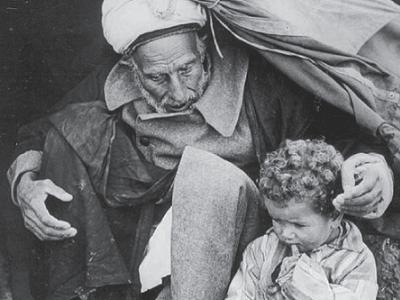
The British Independent newspaper reported that “the son of a Dutch couple who hid Jewish people from the Nazis during the Holocaust has asked for his father’s name to be removed from a monument built on the site of a destroyed Palestinian village.”
“Erik Ader, whose parents, Bastiaan Jan and Johanna Ader, are believed to have helped at least 200 Jews escape during World War II, said he considered the monument to be an abuse of his father’s memory and that his family name has been exploited to cover up “an act of ethnic cleansing” of Palestinians,” according to the daily paper.
The Independent further reported that the “former Netherlands ambassador to Norway told Dutch public broadcaster NOS that although he cannot ask his father, who was executed by the Nazis in 1944, what he thinks “of how his name is connected to this injustice,” it is not difficult to guess, “knowing what he stood for”.”
It went on to report,
A Jewish National Fund (JNF) monument bearing Bastiaan Jan Ader’s name currently sits in a forest, planted on the ruins of Bayt Natiff, a Palestinian village about 13 miles southwest of Jerusalem which was destroyed by the Israeli Defense Forces (IDF) during the first Arab-Israeli war in 1948. Until a decade ago, Mr Ader said he had no idea a razed village lay underneath the trees.
Mr Ader told NOS that in addition to asking for his father’s name to be removed from the site, he has donated 1,100 olive trees for a new forest, which will be named after his father, near a Palestinian village in the West Bank. He said he is gifting these trees to the village to make amends for the similar number of pine trees planted by the JNF in his family’s name to conceal the remains of Bayt Natiff.
Bayt Natiff was destroyed during Operation Ha-Har, an IDF campaign against villages south west of Jerusalem, launched at the end of October 1948.
Nestled on a hilltop and surrounded by olive groves, it had sat on an ancient road connecting Jerusalem and the Arab village of Bayt Jibrin (which has also been destroyed), near Hebron, since at least the Roman period. It was home to between 2,150 and 2,400 Muslims living in 350 homes, which were all destroyed. None of the villagers have been allowed to return, many now live as refugees in Jordan or the West Bank.
Mr Ader told Middle East Eye he was especially angry with the JNF, an international Zionist charity with semi-governmental authority in Israel, which had raised funds from Dutch Jews to plant the trees. He said those who made the donations had been deceived and did not know what their money was used for. He also criticised the Dutch government, which took part in the original dedication ceremony of the forest, and according to Mr Ader must have known about the village beneath the trees.




